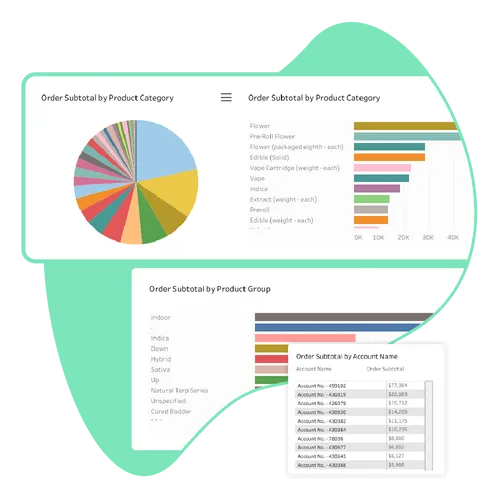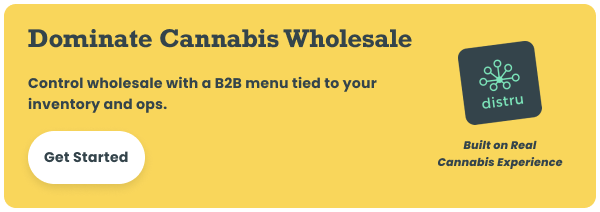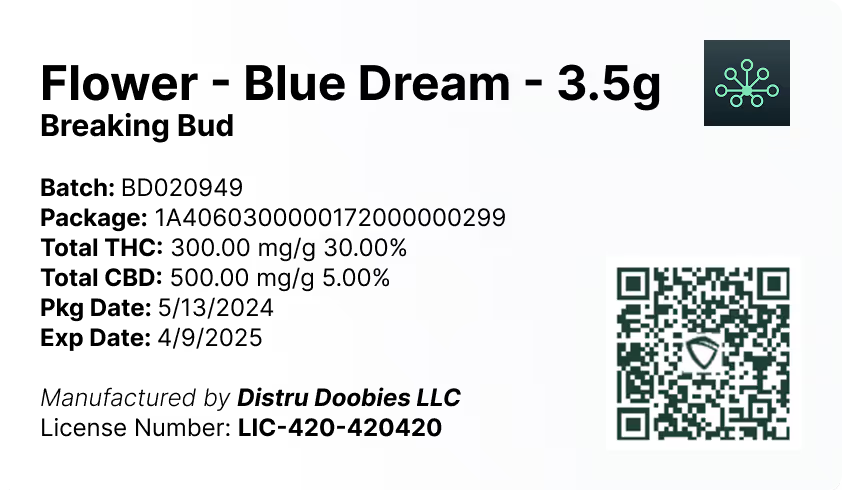The cannabis industry continues to evolve at a remarkable pace, creating both opportunities and challenges for businesses seeking to boost sales and revenue. As competition intensifies, cannabis cultivators, processors, distributors, and retailers must implement targeted sales strategies that address the unique dynamics of this market. B2B platforms have emerged as critical tools for success in this ecosystem, streamlining operations and enabling businesses to focus on growth.
Understanding the Cannabis B2B Landscape
Let's explore the top 10 sales strategies for cannabis businesses with an emphasis on how cannabis B2B platforms can drive success in this competitive marketplace.
1. Understand Your Audience Through Data-Driven Insights
The foundation of effective cannabis sales is a deep understanding of your target audience. Modern B2B cannabis platforms offer robust analytics that provide valuable insights into customer preferences, purchasing patterns, and market trends. By leveraging these insights, you can tailor your product offerings, marketing messages, and sales approaches to resonate with your specific audience segments.

2. Optimize Your Digital Presence and Discoverability
In today's digital landscape, your online presence directly impacts your ability to connect with potential B2B customers. Cannabis-specific B2B platforms increase your visibility to relevant buyers, creating a targeted digital footprint that general marketing cannot achieve. These platforms often include searchable product catalogs that help buyers find your products based on specific criteria.
.png)
Leveraging Data for Strategic Advantage
The most successful cannabis businesses make decisions based on solid data rather than intuition alone.
3. Harness the Power of Real-Time Analytics
Data-driven decision making separates successful cannabis businesses from those that struggle to compete. B2B cannabis platforms provide real-time analytics on market trends, pricing dynamics, and inventory movement that would be difficult to compile independently. These insights enable you to identify emerging opportunities, optimize pricing strategies, and forecast demand with greater accuracy.
4. Create Exceptional B2B Customer Experiences
The B2B cannabis purchasing experience has evolved far beyond simple transactions. Today's wholesale buyers expect streamlined ordering processes, transparent inventory availability, and consistent communication. B2B platforms facilitate these experiences by providing intuitive ordering interfaces, real-time inventory visibility, and automated communications.
.png)
Optimizing Product Strategy and Presentation
How you present and position your products can significantly impact your sales success in the cannabis B2B environment.
5. Implement Strategic Product Showcasing
How you present your products to potential B2B buyers significantly impacts your sales success. Cannabis B2B platforms offer sophisticated digital showcasing tools that allow you to highlight product features, testing results, cultivation methods, and other differentiating factors. These platforms enable you to create compelling product stories that resonate with buyers looking for specific attributes.

6. Develop B2B Loyalty Programs Through Platform Integration
Customer retention is particularly valuable in the cannabis industry, where acquisition costs can be high due to regulatory complexities. B2B cannabis platforms often include features that support loyalty program management, volume-based pricing tiers, and preferred customer benefits. By implementing these programs through your B2B platform, you can incentivize repeat purchasing while collecting valuable data.
Competitive Intelligence and Marketing
Staying ahead in the cannabis industry requires both awareness of competitor activities and strategic marketing approaches.
7. Conduct Competitive Analysis Within the Marketplace
Understanding your competition is essential for developing effective sales strategies. B2B cannabis platforms provide a unique window into competitive positioning, pricing strategies, and product innovation across the industry. By monitoring competitor activities on these platforms, you can identify gaps in the market, refine your differentiation strategy, and adjust your approach.
8. Leverage Integrated Marketing Capabilities
Despite regulatory restrictions, cannabis businesses have numerous opportunities to market effectively within B2B ecosystems. Many cannabis B2B platforms offer compliant marketing tools such as featured product placements, new arrival announcements, and targeted notifications to relevant buyers. These capabilities allow you to promote your products within a pre-qualified audience of potential buyers.
Compliance and Continuous Improvement
Success in the cannabis industry requires both regulatory adherence and ongoing adaptation to market feedback.
9. Ensure Compliance Through Automated Documentation
Regulatory compliance remains a critical concern for cannabis businesses, with documentation requirements creating significant operational burdens. Advanced B2B cannabis platforms integrate compliance features that automatically generate and maintain required documentation for transactions, testing results, and chain of custody. This allows your sales team to focus on relationship building rather than paperwork.
10. Establish Continuous Feedback Loops With Buyers
Sustained growth requires ongoing adaptation based on market feedback. B2B cannabis platforms facilitate direct communication channels with buyers, including rating systems, feedback forms, and discussion features. These tools provide valuable insights into product performance, service quality, and emerging buyer needs.
The Future of Cannabis B2B Commerce

As the cannabis industry matures, integrated B2B platforms have become essential infrastructure for businesses serious about sales growth. These platforms connect the entire ecosystem—from cultivation to retail—while streamlining operations and providing valuable market intelligence. Systems like Distru offer comprehensive solutions that address multiple aspects of the cannabis value chain, combining inventory management, compliance automation, and commerce capabilities in a single platform.
By leveraging these B2B platforms, cannabis businesses can implement the sales strategies outlined above more effectively and efficiently. The most successful companies recognize that B2B platforms are not merely transaction facilitators but strategic assets that can drive competitive advantage in this dynamic industry.











